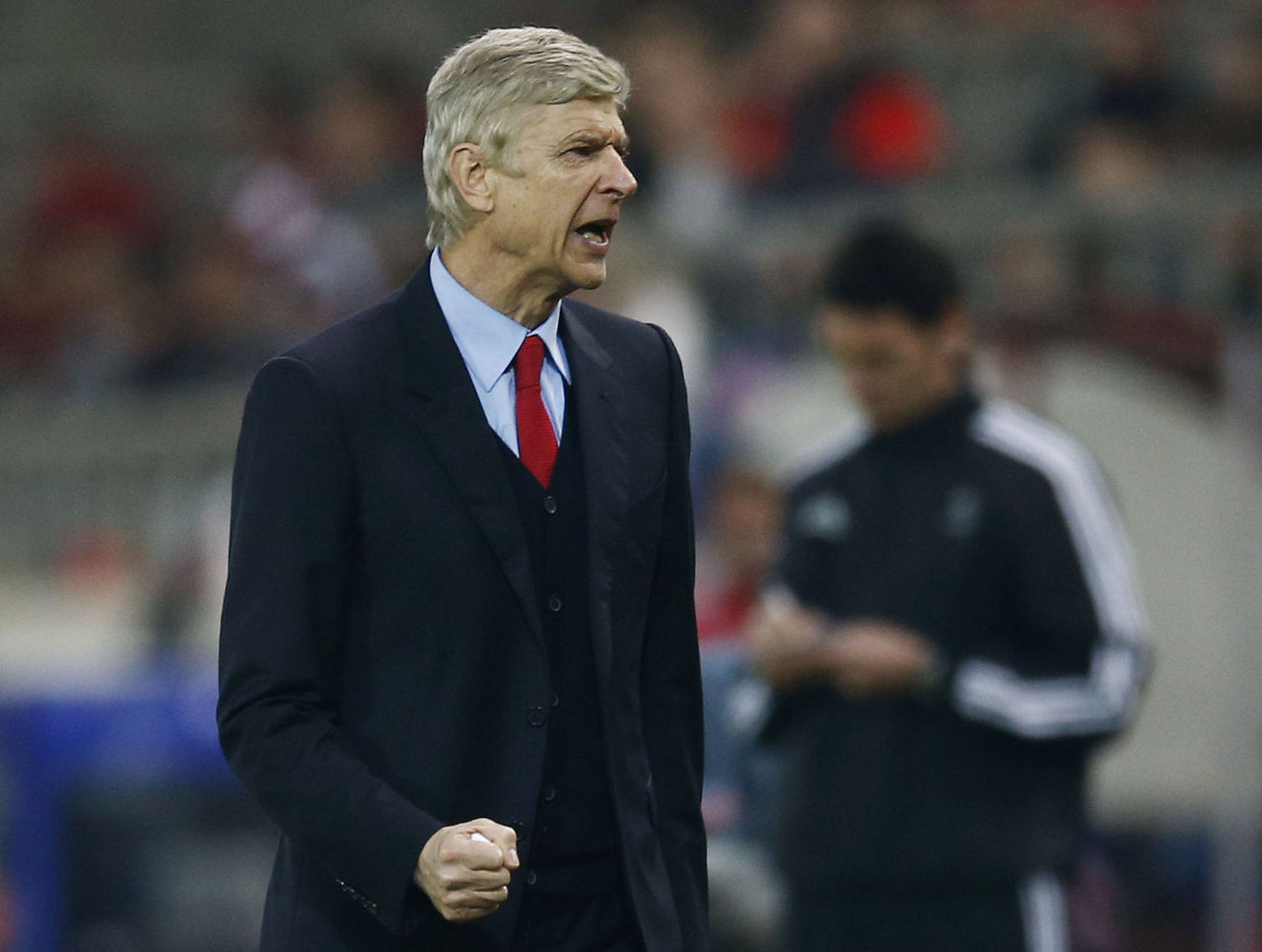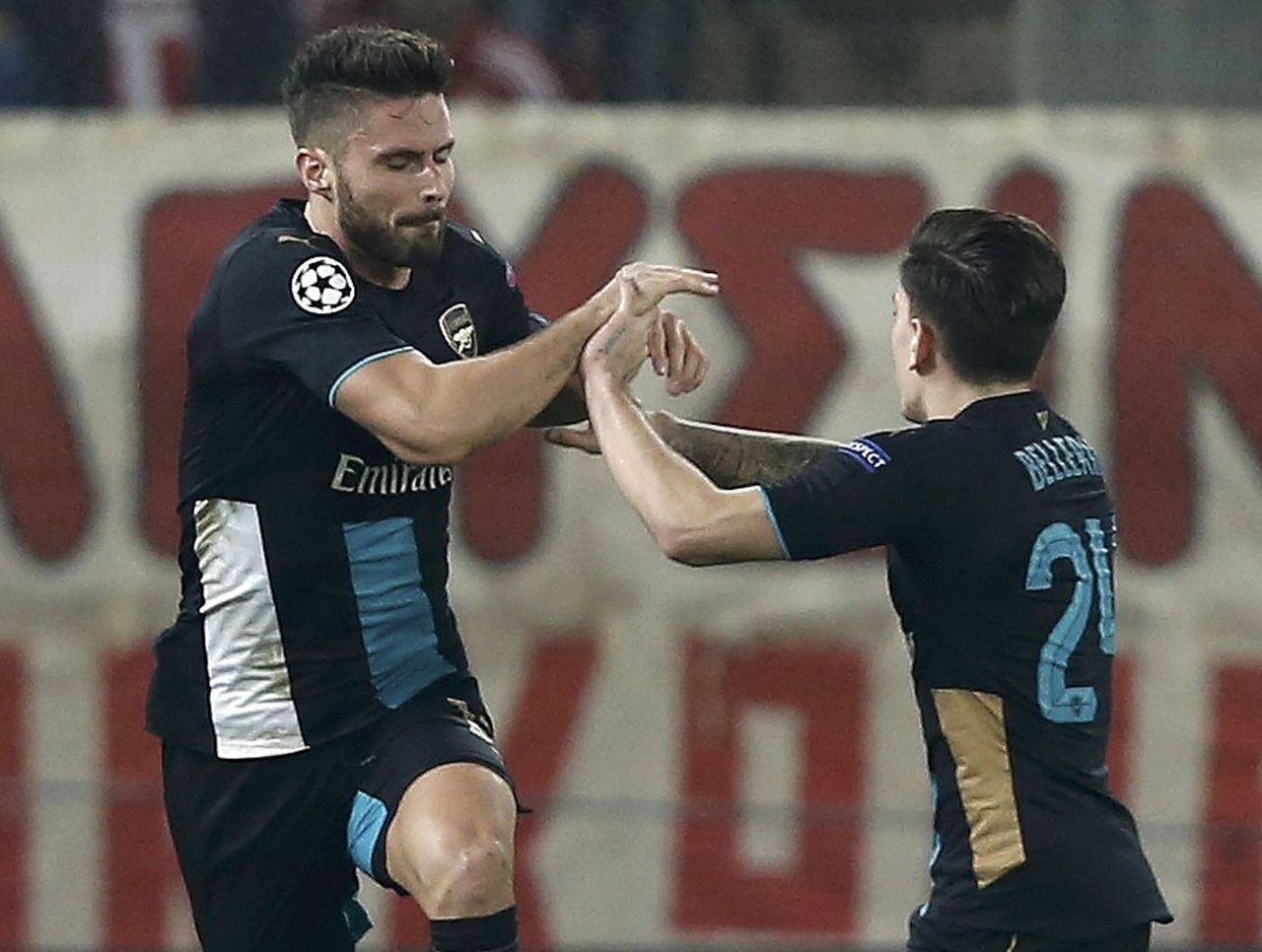From Graham to Wenger: Arsenal's win conjures memories of famous triumph over Liverpool
There were echoes of George Graham in the words that Arsene Wenger chose to preface Arsenal’s do-or-die Champions League clash with Olympiacos. "We play against a side that is, at the moment, qualified," observed the Frenchman. "But they can lose what they have very quickly and that can create a fear factor."
The task before Arsenal was not a small one. Olympiacos had lost just one of their last nine home games in European competition - a run that has included victories over Juventus, Manchester United and Atletico Madrid. Arsenal needed not only to win at the Karaiskakis Stadium, but to do so by a scoreline better than 1-0 or 2-1.
Still, this was no greater a challenge than the one that faced Graham’s Gunners team back in May 1989, when they travelled to Liverpool needing to beat the league leaders by two clear goals to win the domestic title. Their opponents had only conceded nine at home all season, and no more than one in any single match over the previous three months.
Graham, like Wenger, honed in on the importance of psychology. "If we can score, the momentum will change and all the pressure then goes on Liverpool," winger Perry Groves recalled him saying in the locker room. "If we nick a goal it’s game on. Trust me, they will start to panic and the nerves will set in."

The manager’s approach, though, was unconventional. Instead of setting his team up to attack, Graham added a sweeper and sent Arsenal out in an untested and ultra-defensive 5-4-1. Their first task, he insisted, was not to concede a goal - since that would leave them in a hole from which they would never recover. If they could get to half-time at 0-0, that would be half the job done.
Events would vindicate him completely. Arsenal navigated their way through a goalless first half before going on to achieve one of the most famous wins in English footballing history.
It was Alan Smith who got their first goal, not long after the interval, but that will never be remembered as vividly as Michael Thomas’ 89th minute dink over Bruce Grobbelaar. Not until the final quarter of an hour had Graham finally thrown caution to the wind, sending Groves on for centre-back Steve Bould.
If Wenger were a different man, he might have considered this a blueprint to follow. Then again, if that were the case he might never have got the job in the first place. The boldness of his footballing outlook, after all, was one of the characteristics that attracted Arsenal to him in 1996, a year after the cautious Graham was fired.
And so, on Wednesday, Wenger did things his own way, as we knew that he would.
Related - Against the odds: 3 reasons why Arsenal advanced to Round of 16
Arsenal lined up in the same 4-2-3-1 formation that they always use. Wenger’s selection options had been restricted by injury, but he did gamble on the fitness of Theo Walcott, who had played his first 26 minutes of football in more than a month during the win over Sunderland at the weekend.
Arsenal strived to get forward from the first whistle. But to Wenger’s credit, they were not reckless. Olympiacos are a team built to play on the counter under Marco Silva and their eagerness to strike on the break was apparent. Brown Ideye and Felipe Pardo ran hard at the visitors’ defence at every opportunity.
And yet, Arsenal never allowed their opponents a clear-cut chance in these opening exchanges - despite throwing enough men forward to craft a few of their own. Mathieu Flamini saw a close-range shot tipped onto the bar in the 25th minute after Olivier Giroud and Joel Campbell combined wonderfully down the right.

For Olympiacos, this would only be the briefest stay of execution. Arsenal took the lead three minutes later through a Giroud header. Suddenly, for Olympiacos, that fear factor began to feel very real. The closest they ever came to dispelling it was in the 40th minute, when a backtracking Laurent Koscielny was obliged to divert an Ideye cross over his own bar from a few yards out.
Giroud’s second goal, slotted home soon after a deft assist from Campbell, briefly transferred the nervousness over to Arsenal’s side. They were now the team with something to lose. If Ideye’s touch had been better on the edge of the six-yard box in the 62nd minute, maybe the tide could have turned.
Related - VIDEO: Giroud, Joel team up to help Arsenal reach the knockout stages
Instead, Arsenal won a penalty moments later, and Giroud stepped up to convert it.
There was no more way back for Olympiacos. Fear had transformed into despair. Wenger looked on in satisfaction. Just like Graham 25 years before him, he had delivered on his bold prediction. And just like Graham 25 years before him, he had done it on his own terms.